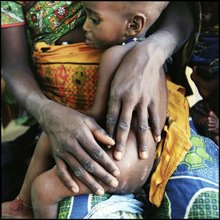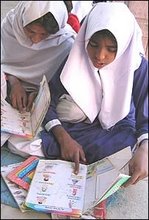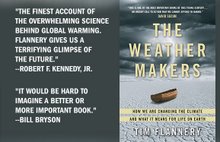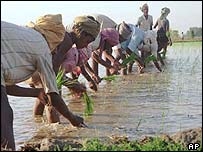PREAMBLE: Following on from our May issue (scan down, directly below), which devoted its space to the predicament of indigenous peoples in the face of climate change, for this June issue we decided to donate our space to dissemination of another statement on climate change, this time from the UK-based Climate and Health Council whose message is that ‘Climate Change is the biggest global health threat of the 21st century’.
This message is part of a campaign to elict support for action from the global health community, leading up to the United Nations Climate Change Conference (COP15) in Copenhagen, December 7-18, 2009 (for more information: http://www.en.cop15.dk/ ).
As the editors of the British Medical Journal and Lancet have stated, as co-chairs of the Climate and Health Council:
“Over the coming months it is crucial that all those involved in the negotiations are made aware of this campaign, of the growing body of health professional consensus, and of the importance of the message.”
They appeal for a broader-based communication strategy, and Pacific Health & Development Sciences Inc. is pleased to add its voice to this effort.
TACKLING CLIMATE CHANGE, PROTECTING HEALTH
The essence of the Climate and Health Council position is this.
1. For all those involved in negotiations to control climate change, it is important to understand that mitigating climate change can have the immediate and beneficial effect of improving public health and reducing health inequalities. These health arguments have a particular, and so far unrealised, force. They should be set alongside the powerful arguments that “climate change is the single biggest global health threat of the 21st century” (Lancet May 16th)
2. In particular, the policies that are needed to reduce greenhouse gas emissions will also bring about immediate reductions in heart disease, cancer, obesity, diabetes, mental illness, road deaths and injuries, and air pollution through promoting substantially increased physical activity (e.g. walking and cycling) and much improved diets (less meat, fat and sugar, more fruit and vegetables). Not only will overall health be improved but there is good evidence that such action will contribute to minimising the gap in health between rich and poor, promoting more biodiversity and a more sustainable food system – both important additional determinants of a just and sustainable society.
3. The evidence for this being true, important, and possible comes from health professionals, a sector of society in which the public places trust, who are firmly calling for substantial action on behalf of their families, their patients and the public, and which is showing itself foursquare behind the need for action. Health professionals are amongst those who are at the front line in enabling the enormous behavioural and social changes which will be necessary if we are to achieve a transition to a low carbon economy and lifestyle.
4. These arguments are rooted in notions of equity and social justice and must occupy a much more dominant position in the minds of the negotiators in the run up to, and at, Copenhagen than they have at previous UN Climate Change conferences.
Reference: Climate and Health Council is part of a registered charity Knowledge into Action. www.climateandhealth.org
FROM a Great Canadian and World Statesman
"A great gulf... has... opened between man's material advance and his social and moral progress, a gulf in which he may one day be lost if it is not closed or narrowed..."
Lester B Pearson
http://nobelprize.org/nobel_prizes/peace/laureates/1957/pearson-lecture.html
INSPIRATIONAL WELCOME ............................... from T.S.Eliot's "Little Gidding"
If you came this way From the place you would come from... It would be the same at the end of the journey...
If you came, not knowing what you came for, It would be the same... And what you thought you came for Is only a shell, a husk of meaning... From which the purpose breaks only when it is fulfilled If at all.


























